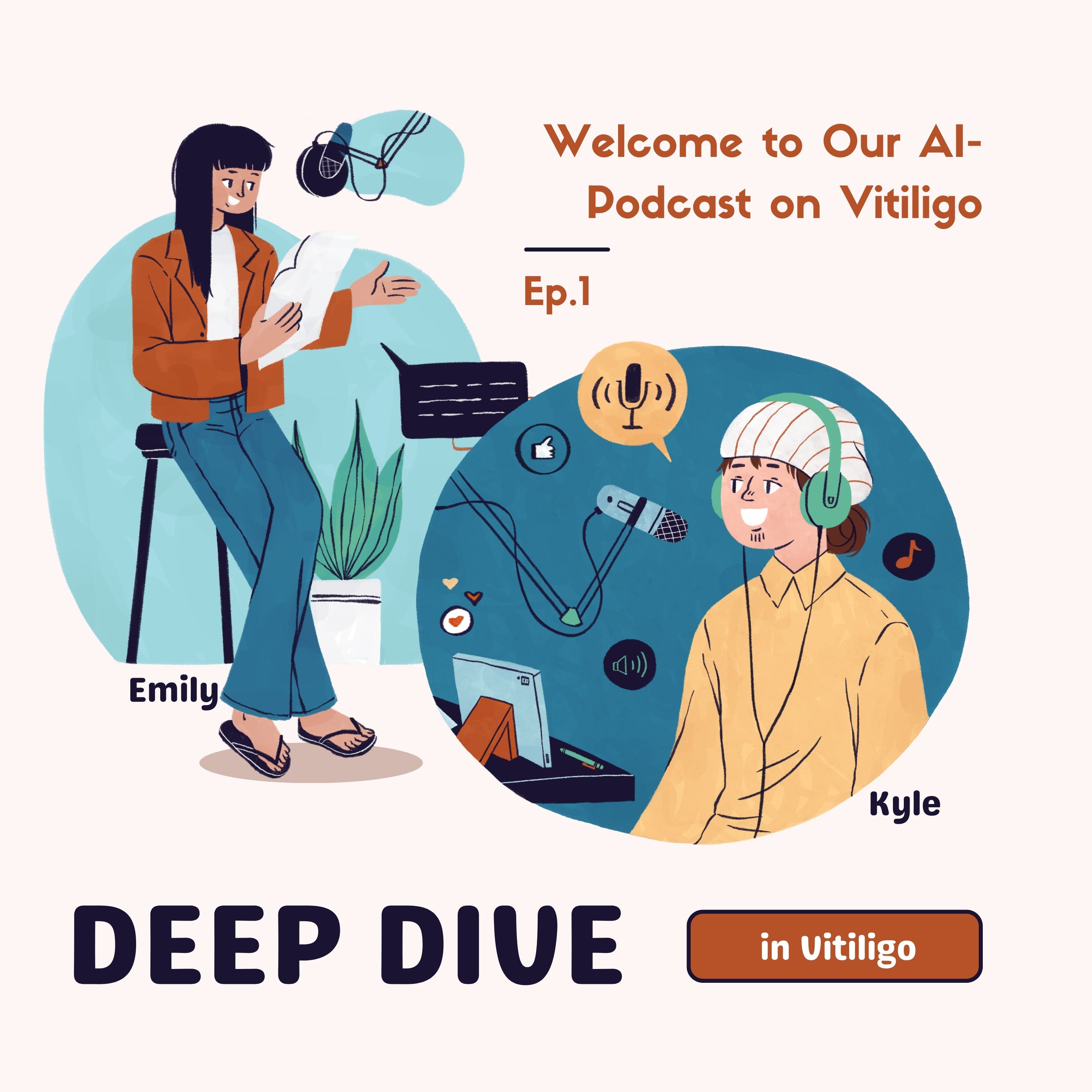Our work is entirely funded by private donations – we receive no money from government. Your money will help us continue funding research into vitiligo and supporting people affected by the condition.
Podcast
Giving Vitiligo a Voice: Deep Dive Podcast (Ep. 1)
In a world where everyone has a podcast, it's time for vitiligo to have it's own voice. Hosted by the Vitiligo Research Foundation, this weekly podcast breaks down complex science, research, and lifestyle tips into engaging, easy-to-digest episodes for everyone—whether you're living with vitiligo, a healthcare professional, or simply curious.
Get the latest updates on groundbreaking treatments, social media trends, and practical advice delivered by AI-driven news anchors and expert human editors. From the origins of vitiligo to actionable tips for daily life, Deep Dive In Vitiligo makes understanding this misunderstood condition accessible and interesting.
Tune in to deepen your knowledge—because in a world full of noise, it's time for vitiligo to have its own voice.
Read more: Why is VRF entering the podcast scene?

FAQOther Questions
- Are there any famous people with vitiligo?
Many celebrities have dealt with vitiligo while remaining in the public eye, maintaining a positive outlook, and having a successful career. Here are a few courageous famous peo...
- Which skin conditions can be mistaken for vitiligo?
Vitiligo is a common skin condition with characteristic milky white patches of irregular shape. However, several other skin conditions exhibit similar symptoms that can lead to ...
- Can Ayurveda help with vitiligo?
Ayurveda, the ancient Indian system of holistic medicine, focuses on balancing body energies (Doshas) and improving digestion. While it offers a valuable perspective on "whole-b...
Though it is not always easy to treat vitiligo, there is much to be gained by clearly understanding the diagnosis, the future implications, treatment options and their outcomes.
Many people deal with vitiligo while remaining in the public eye, maintaining a positive outlook, and having a successful career.
Copyright (C) Bodolóczki JúliaBy taking a little time to fill in the anonymous questionnaire, you can help researchers better understand and fight vitiligo.